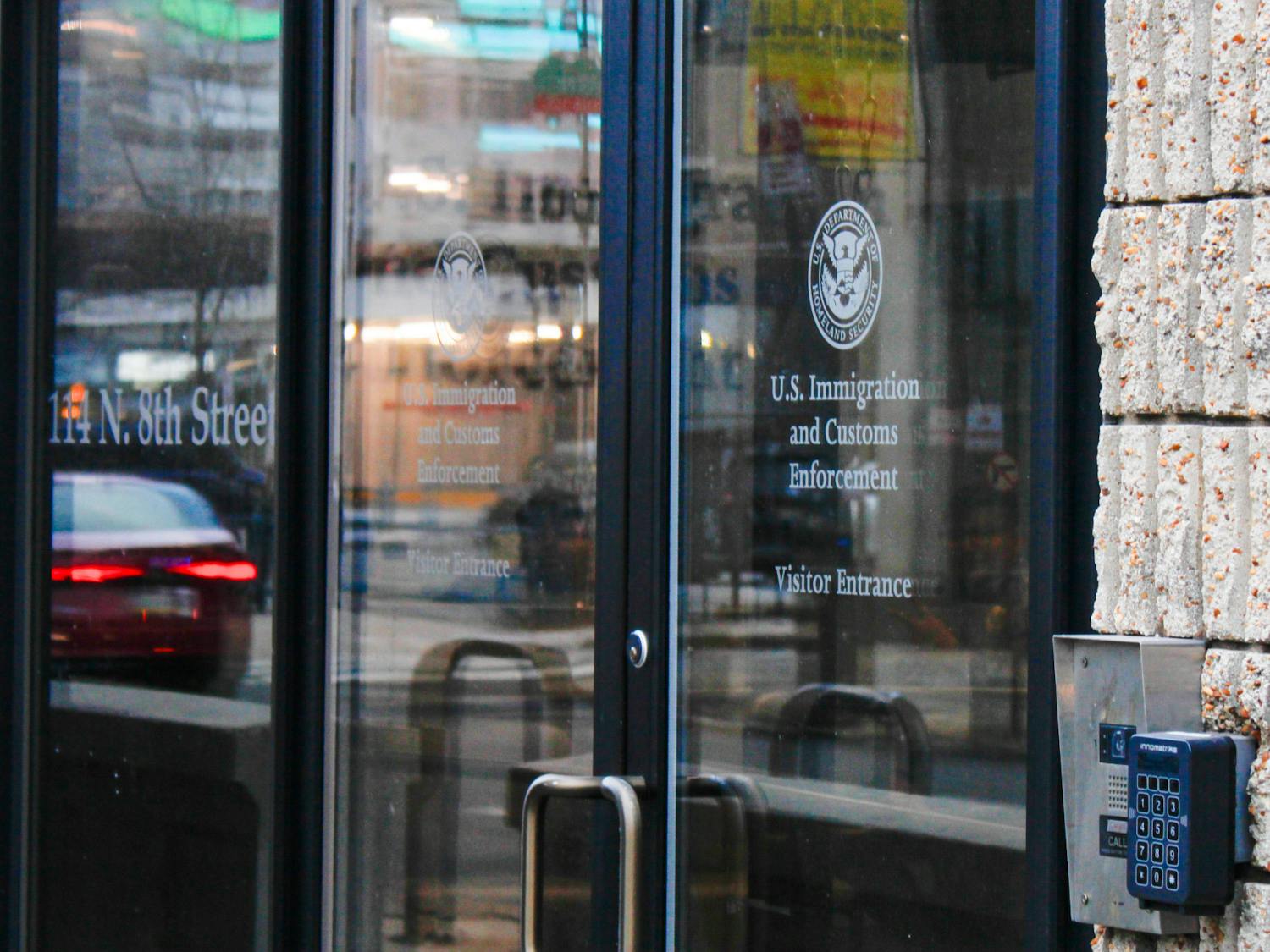In the days leading up to this weekend’s Boycott, Divestment and Sanctions national conference, questions about the group’s place at Penn prompted additional security measures. Yet, the two-day conference — hosted by Penn’s chapter of the pro-Palestine group, PennBDS — took place in an admirably peaceful manner this weekend.
Students, faculty and community members from both sides of the debate on the Israeli-Palestinian conflict made a concerted effort not to directly confront each other at campus events. Instead, each faction invited an array of high-profile speakers to campus in order to articulate its views.
On Thursday night, students in support of Israel filled Zellerbach Theatre to hear Harvard Law professor Alan Dershowitz speak. On Friday night, Pennsylvania State Sen. Anthony Williams addressed student leaders at Hillel. On Saturday and Sunday, the BDS conference then kicked into high gear, with keynote speaker, Palestinian-American activist Ali Abunimah likening the Israeli-Palestinian conflict to the American civil rights movement and apartheid in South Africa in front of a crowd in Myerson Hall.
While these talks were informative, they were primarily populated by a self-selecting group of students, faculty and community members who were eager to have their views reaffirmed.
Penn BDS can be thanked for reinvigorated debates about the Israeli-Palestinian conflict among students, but the quality of these debates — which took place in closed circles — remains to be questioned.
Financial constraints and the limitations of venues at the University certainly played a part. Although BDS conference organizers encouraged dissenters to ask respectful questions to their speakers, the $20 entrance fee — which helped cover the cost of refreshments and security — may have deterred some from attending events.
But it was only a month ago, on Martin Luther King Jr. Day, when student leaders on different spectrums of the Israeli-Palestinian debate gathered in a room to share their views in light of the upcoming BDS conference. A member from Counseling and Psychological Services with experience as a mediator served as a third-party moderator at the meeting.
This type of face-to-face interaction is laudable and didn’t happen enough this weekend. It involves less rhetoric and more engaged dialogue. It asks students to articulate their views to their opponents and in the process, grants them the opportunity to clarify their thoughts.
Complete coverage
Related
BDS keynote speaks on Palestinian’s struggle for equality
BDS conference opens with criticism of UN, Israel
State senator Anthony Williams addresses student leaders at Hillel
BDS conference arrives this weekend
Upcoming conference sparks debate
Students sign petition against BDS
Politics blog: The Red and the Blue
Dershowitz talk met with polarized online reaction
Now that the BDS conference has left campus, student leaders should strive to achieve this engaged interaction again. Other students who sat out of this weekend’s events, or simply observed, should also consider joining the conversation.
This weekend showed us that the Israeli-Palestinian conflict is not an abstract event an entire continent away. Rather, it is a real and pressing issue that implicates us — as friends, as students and as taxpayers. As citizens living in an increasingly global community, it is no longer possible to ignore the concerns of our neighbors. That’s why it’s time to peel back the rhetoric, educate ourselves and address the heart of the matter.
Complete coverage
Related
BDS keynote speaks on Palestinian’s struggle for equality
BDS conference opens with criticism of UN, Israel
State senator Anthony Williams addresses student leaders at Hillel
BDS conference arrives this weekend
Upcoming conference sparks debate
Students sign petition against BDS
Politics blog: The Red and the Blue
Dershowitz talk met with polarized online reaction








